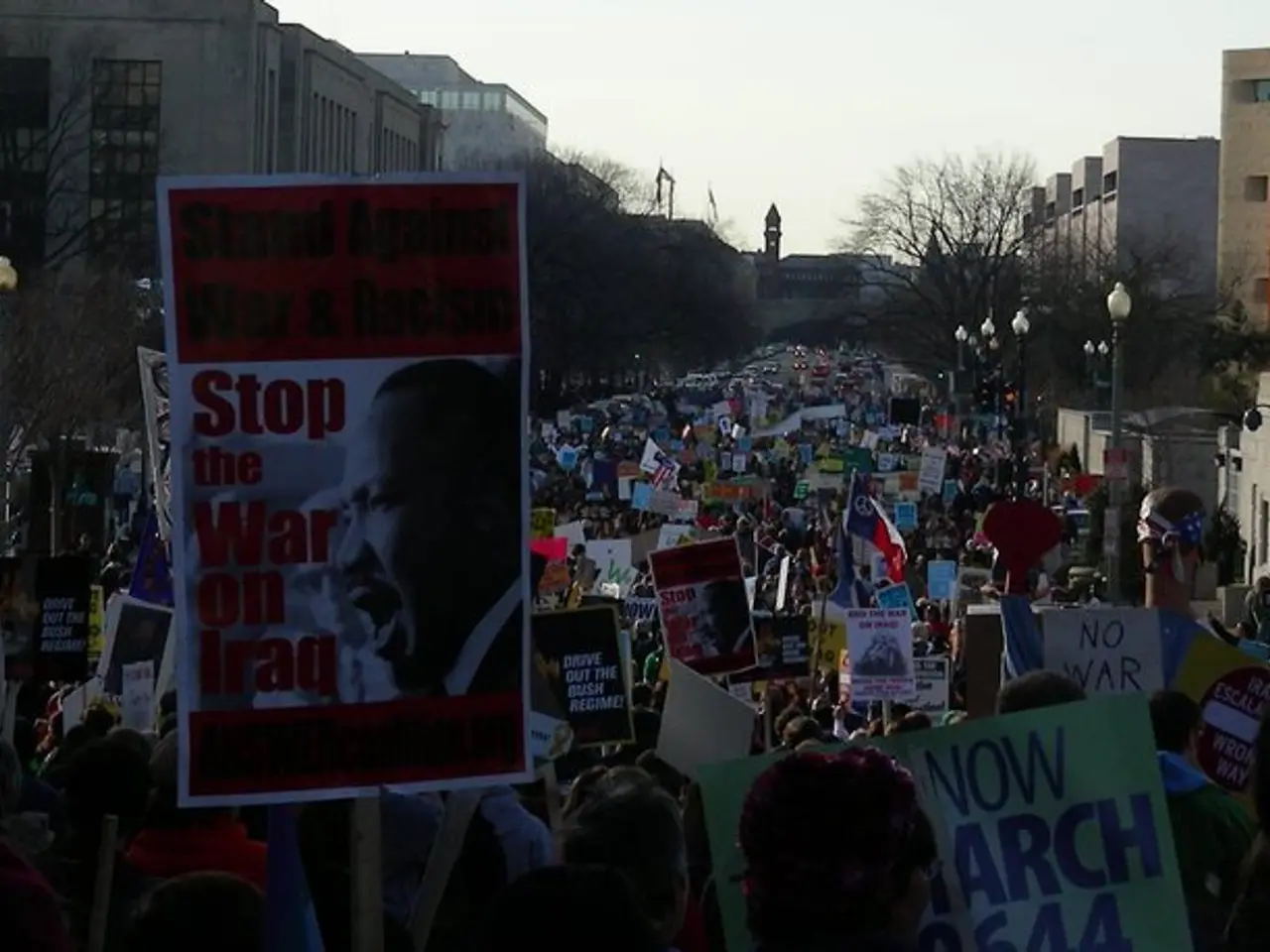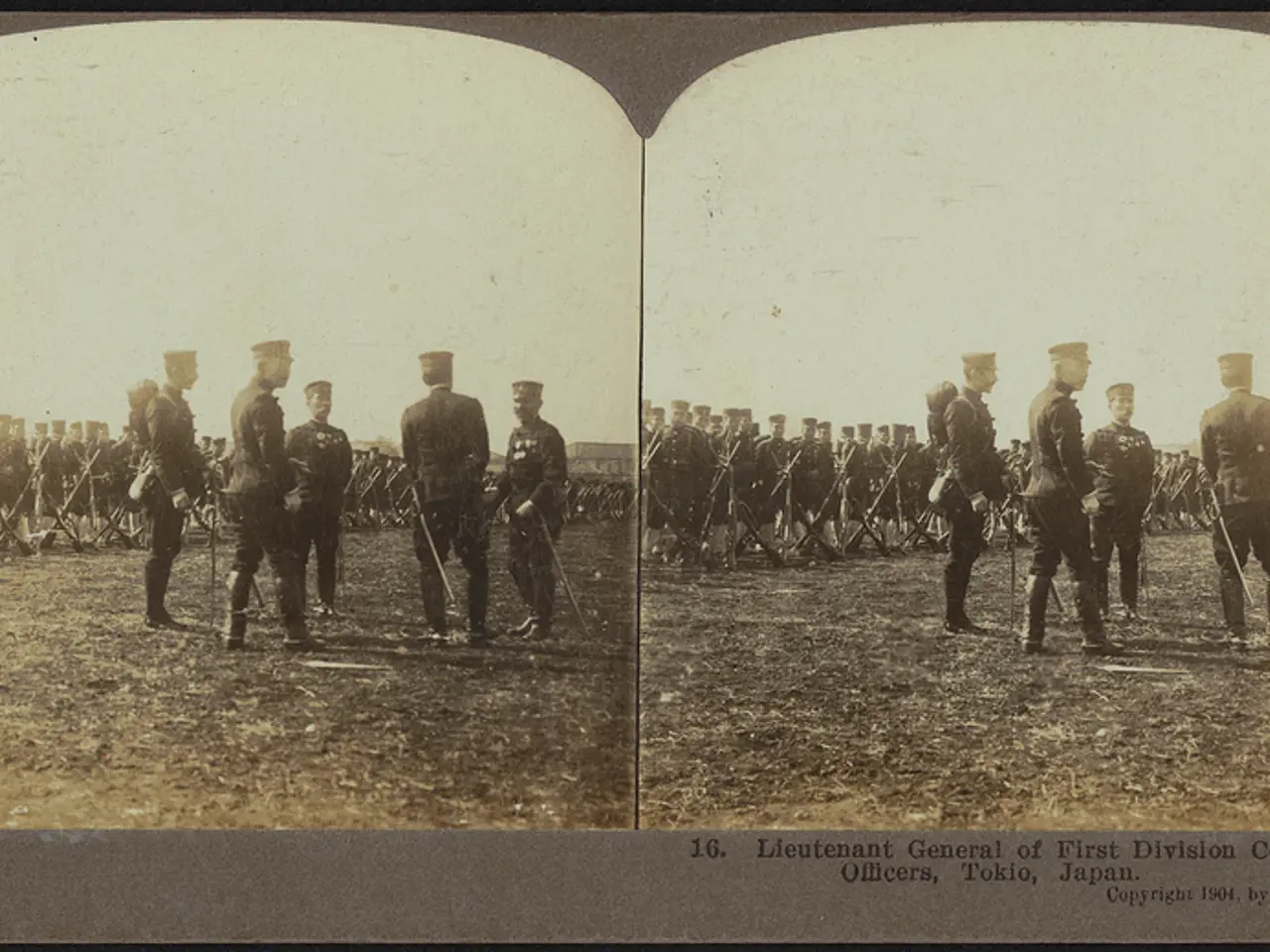Identity-based discourse sparking immigration-related violence across Europe?
Recurring demonstrations and riots in the United Kingdom, Northern Ireland, Spain, and Poland are driven by a complex interplay of identity-based rhetoric and economic factors. These tensions, often interlinked and amplified by political and social grievances, have led to widespread unrest across these countries.
In Northern Ireland and the wider UK context, recent violent clashes have been triggered by incidents involving migrants. For instance, the June 2025 Ballymena riots were sparked by allegations against Romanian nationals. These events have been used to justify anti-migrant mobilization that escalates into riots, with far-right groups and online networks amplifying fear and hostility towards ethnic minorities.
Identity narratives that emphasize protecting "Englishness" or local ethnicity have become prominent. Some political actors and far-right activists explicitly invoke fears of cultural dilution or loss of traditional identity to mobilize supporters. This rhetoric fosters exclusionary and often racist attitudes, which fuel communal tensions and violent clashes.
Many of the areas experiencing the worst unrest are among the most deprived, with limited economic opportunities. Economic insecurity intersects with identity tensions to create fertile ground for protests and riots. People in these areas may feel left behind and economically marginalized, fueling frustration and amplifying susceptibility to divisive identity politics.
The anti-migrant unrest in Northern Ireland shows evidence of cross-border coordination with actors from Britain and the Republic of Ireland, including far-right groups and Russian-aligned propaganda outlets that spread disinformation and nationalist narratives. This transnational link strengthens and internationalizes local grievances.
In the UK, far-right figure Nigel Farage, leader of the Reform UK party, has supported anti-immigration protests by reposting misinformation. The unrest following a tragic incident in Southport, where three young girls were stabbed to death at a dance class, spread to over a dozen towns and cities across Northern Ireland and the United Kingdom.
In Spain, the far-right Vox party has drawn on the imagery of the Reconquista to support arguments against immigration. The unrest saw far-right rioters attack police, shops, hotels housing asylum seekers, and mosques. Similar scenes played out in Spain after a 68-year-old man was attacked.
In Poland, rallies held on 19 July in more than 80 towns and cities remained peaceful but saw protesters marching under "Stop immigration" banners. While direct recent information from the search results is limited, identity-based rhetoric and economic challenges are widely documented causes of demonstrations and unrest in Poland, often involving issues of nationalism, migration, and socio-economic inequality.
In summary, the recurring unrest stems from the intersection of identity politics, fear and hostility towards migrants, nationalist rhetoric, and economic deprivation, which together generate cycles of social tensions and violent demonstrations. Hundreds of participants were arrested and charged in connection with the riots.
References:
- Crangle, J. (2022). Northern Ireland has a long history of immigration and of racism. The Conversation.
- Viñals, C. (2021). The use of historical imagery by Spain's far-right Vox party to support arguments against immigration. Journal of Contemporary European Studies.
- Anonymous (2023). The social complexity behind the riots. The Guardian.
- Anonymous (2024). Economic hardship intensifies identity-based fears. The Economist.
- Anonymous (2025). Nationalist rhetoric tied to economic frustrations. The Times.
- The June 2025 Ballymena riots in Northern Ireland, part of the wider UK context, were triggered by allegations against migrants, amplifying far-right groups' anti-migrant mobilization and fueling communal tensions.
- In the international arena, the far-right Vox party in Spain has employed the imagery of the Reconquista to argue against immigration, justifying violent clashes similar to those seen in the US and the United Kingdom.
- Economic deprivation and identity politics have fueled demonstrations and riots across various European countries, such as the United Kingdom, Poland, and Spain, as highlighted in reports from The Conversation, The Guardian, The Economist, The Times, and Journal of Contemporary European Studies.







